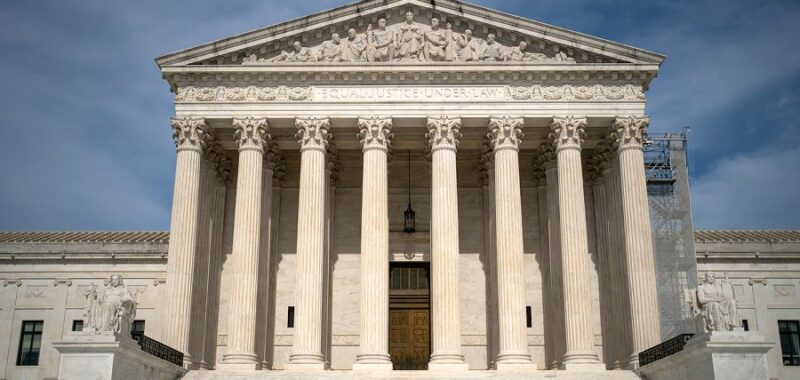
Supreme Court justices returned to the bench for the first time since leaving for their summer recess as their new term officially commenced Monday.
“I have the honor to announce, on behalf of the court, that the October 2023 term of the Supreme Court of the United States is now closed,” Chief Justice John Roberts said in the courtroom.
The upcoming year is set to be dominated by cases implicating transgender rights, guns, the environment, vaping and more.
Even still, the court has fewer blockbuster cases compared to the last few terms. And the court on Monday declined to hear a series of high-profile disputes implicating abortion, campaign finance and special counsel Jack Smith’s warrant of former President Trump’s account on the social platform X.
The presidential election could change things, however, with court watchers largely expecting legal challenges ultimately ending up before the justices one way or another.
The justices kicked off the term Monday with two lower-profile cases centered on unemployment claims in Alabama and pet food.
In the former case, the court reviewed nearly two dozen Alabama residents’ lawsuit against the state for “extreme delays and other irregularities” in processing their unemployment applications during the COVID-19 pandemic.
The Supreme Court is weighing whether Alabama could require applicants to exhaust the unemployment system’s appeal process before suing in court.
Adam Unikowsky, the attorney representing the residents, called that process “Kafkaesque” since the problem was an inability to exhaust in the first place.
“We’re not saying in this court that we necessarily deserve to win. We just want a chance to be heard,” Unikowsky told the justices.
Edmund LaCour, Alabama’s solicitor general, told the justices that the backlog of applicants who have waited at least 21 days for a hearing has declined from more than 131,000 in January 2022 to about 7,410.
“We anticipate clearing that backlog by the end of the year,” LaCour added.
The second case heard Monday arose from two people’s purchase of “prescription” pet food manufactured by Royal Canin and Purina.
The class-action lawsuit alleges the companies ran afoul of federal food and drug law by misrepresenting that pet owners were legally required to get a prescription before purchasing the products.
At issue is the companies’ bid to move the case from Missouri state court to federal court, which hinges on the original lawsuit alleging violations of federal law.
To keep the case in state court, the two pet owners responded by amending their lawsuit to delete all references to the federal statute. The Supreme Court is now reviewing whether to allow the gambit.
“Respondents cannot cite a single decision of this Court, a single decision of a court of appeals outside of the Eighth Circuit, or a single treatise that supports their position,” said Katherine Wellington, who represented the pet owners.
Ashley Keller, the attorney representing the companies, responded by saying “despite my friend’s professed commitment to textualism, she has no choice but to flee to public policy.”
“We can’t have these mischievous plaintiffs’ lawyers shopping around for their judges, we’re told,” Keller continued. “Now, that concern is not happening in the real world. And my friend’s solution wouldn’t solve the problem even if it were.”
Things will pick up later this week. On Tuesday, the justices will take the bench to review President Biden’s crackdown on “ghost guns,” and on Wednesday, the court will hear a high-profile execution case.
Decisions in all of the cases are expected by summer 2025.
The court’s return follows a busy summer for the justices. The full court resolved 28 emergency applications during their summer recess, a significant increase from the year prior.
“Our summers used to be, actually, summers,” Justice Elena Kagan joked in July at a judicial conference in California.
Meanwhile, two justices released new books over the summer and went on promotional tours across the country. Justice Neil Gorsuch co-authored a book criticizing overregulation and an explosion of laws, while Justice Ketanji Brown Jackson released a memoir about her background and journey to becoming the first Black woman to serve on the Supreme Court.

